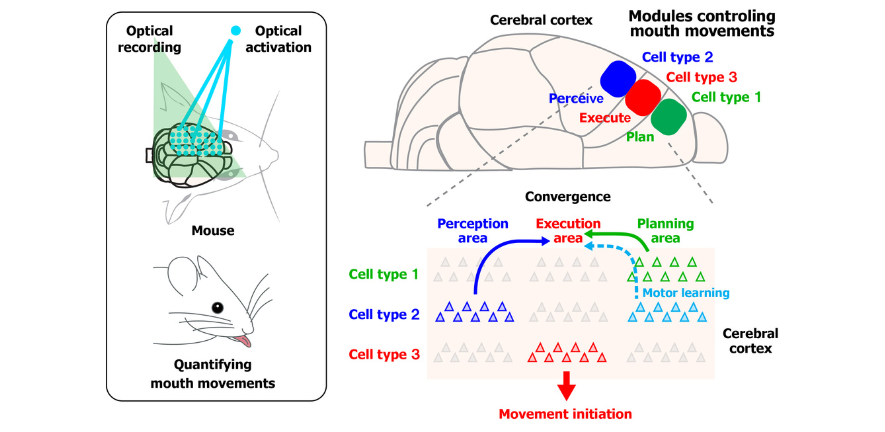
Submitted by Emily Rigby on Thu, 20/03/2025 - 15:55
Scientists have identified previously unknown neural modules in the brain that control movement and adapt during skill learning. Their findings challenge long-held ideas about how the brain organizes movement.
A new study from the University of Cambridge, École Polytechnique Fédérale de Lausanne (EPFL), and Kumamoto University, has used advanced optical and genetic techniques to reveal that a movement unit in the neocortex contains distinct neural modules—each localized in different areas that have classically been assigned to planning, executing and sensing movements. More importantly, these modules change and adapt as skills are learned, providing a new framework for understanding how the brain refines motor control.
The study was led by PDN Assistant Professor and Principal Investigator Keita Tamura, Pol Bech, and Carl Petersen at EPFL’s Brain Mind Institute, and is published in Current Biology.
A press release by EPFL, which can by found at Unraveling the brain's hidden motor modules - EPFL discusses the research in further detail.
Read the full paper at Cell-class-specific orofacial motor maps in mouse neocortex - ScienceDirect
.

